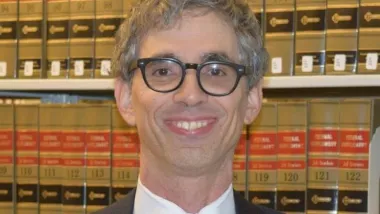Last week, I was busy trying to turn my paper on sprawl in Canada (available at http://works.bepress.com/lewyn/65/) into a speech. In my paper, I define sprawl in two ways: where we grow (measured by growth or decline of central cities, controlling for municipal annexations) and how we grow (measured by modal shares for cars and transit). As I was proofing, I asked myself: why these particular measurements? What presuppositions underlie defining sprawl based on, say, modal share as opposed to the growth of a urban area's land mass?
Last week, I was busy trying to turn my paper on sprawl in Canada (available at http://works.bepress.com/lewyn/65/) into a speech. In my paper, I define sprawl in two ways: where we grow (measured by growth or decline of central cities, controlling for municipal annexations) and how we grow (measured by modal shares for cars and transit). As I was proofing, I asked myself: why these particular measurements? What presuppositions underlie defining sprawl based on, say, modal share as opposed to the growth of a urban area's land mass?
It seems to me that how you define sprawl must be based on what you view as interesting or problematic about sprawl. My concerns about sprawl are based primarily on concerns about freedom and consumer choice. To me, a region where city living is not a reasonable option is a place lacking in adequate choice, so I define a sprawling region as one where the city has weakened over time. A region where not driving is not a reasonable option for most people is similarly lacking in consumer choice, so I focused on automobile dependence and used modal share as my leading criterion.
But someone focused primarily on environmental issues would want to measure sprawl very differently. For example, if your primary interest is in sprawl-related destruction of wildlife habitat or agriculture, you would consider a sprawling region as one with lots of land that is no longer usable by wildlife or agriculture (perhaps measured by the growth of the suburban land mass from X square miles to Y square miles). If your primary interest is air pollution and greenhouse gas emissions you might wish to define a sprawling region as one with a high level of transportation-related emissions per capita (a much trickier enterprise, since these sorts of statistics are not so easy to find). If your primarily concern is social and fiscal inequality between city and suburb, you might define a sprawling region as one where a city is much poorer than its surrounding suburbs, and accordingly focus on measures of per capita and household income for a city and its surrounding suburbs.

Planetizen Federal Action Tracker
A weekly monitor of how Trump’s orders and actions are impacting planners and planning in America.

Chicago’s Ghost Rails
Just beneath the surface of the modern city lie the remnants of its expansive early 20th-century streetcar system.

Amtrak Cutting Jobs, Funding to High-Speed Rail
The agency plans to cut 10 percent of its workforce and has confirmed it will not fund new high-speed rail projects.

Ohio Forces Data Centers to Prepay for Power
Utilities are calling on states to hold data center operators responsible for new energy demands to prevent leaving consumers on the hook for their bills.

MARTA CEO Steps Down Amid Citizenship Concerns
MARTA’s board announced Thursday that its chief, who is from Canada, is resigning due to questions about his immigration status.

Silicon Valley ‘Bike Superhighway’ Awarded $14M State Grant
A Caltrans grant brings the 10-mile Central Bikeway project connecting Santa Clara and East San Jose closer to fruition.
Urban Design for Planners 1: Software Tools
This six-course series explores essential urban design concepts using open source software and equips planners with the tools they need to participate fully in the urban design process.
Planning for Universal Design
Learn the tools for implementing Universal Design in planning regulations.
Caltrans
City of Fort Worth
Mpact (founded as Rail~Volution)
City of Camden Redevelopment Agency
City of Astoria
City of Portland
City of Laramie






























